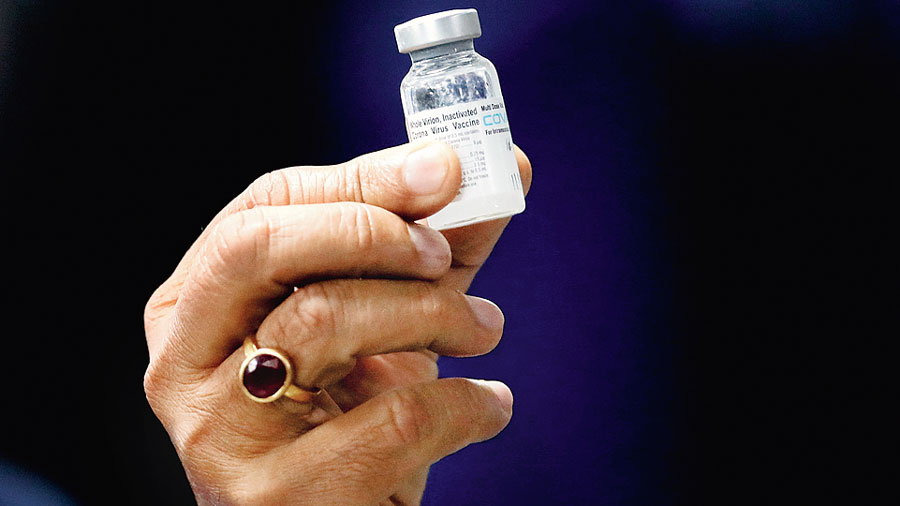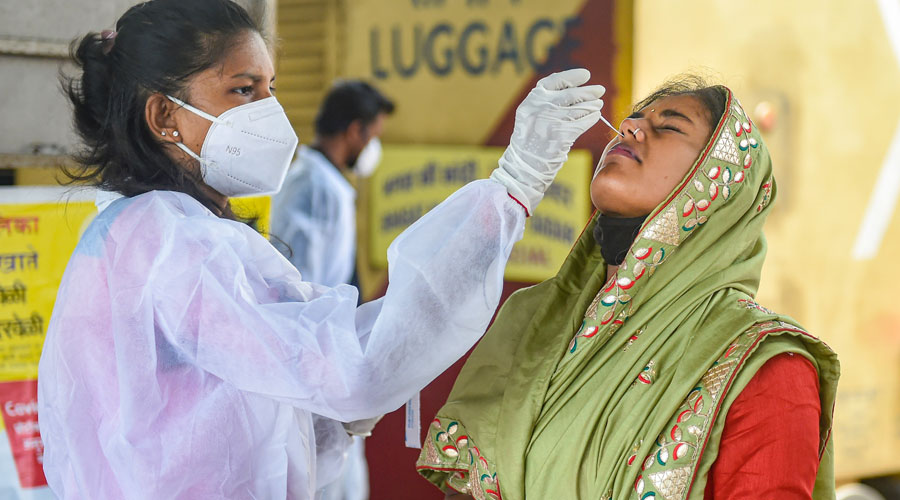India has approved a DNA vaccine against Covid-19 developed by the Ahmedabad-based pharmaceutical company Zydus Cadila, the country’s second homegrown vaccine against the infection and the first approved for use in children 12 years or older.
The Central Drugs Standard Control Organisation, India’s regulatory authority for drugs and vaccines, has granted emergency use authorisation for the three-dose vaccine named ZyCoV-D, the company and the department of biotechnology that funded its development said on Friday.
The CDSCO’s approval represents a technical greenlight for the vaccine to be used in anyone 12 years or older. But the Centre’s vaccination policy makers will have to take a decision on when to actually open up the vaccination for children, taking into account the doses expected, and whether to prioritize certain groups of children considered at high risk for severe disease.
Zydus Cadila has said it plans to produce 100-120 million doses annually. The Union health ministry has included 50 million doses of ZyCoV-D in its projected inventory of the 1,350 million doses India will require between August and December this year to vaccinate all adults.
A company spokesperson told The Telegraph that the quantum of doses expected to be made available in the coming months would be announced soon.
In clinical trials involving around 28,000 volunteers, the vaccine has shown 66.6 per cent protective efficacy against symptomatic Covid-19. Under globally adopted standards, a Covid-19 vaccine has to show at least 50 per cent efficacy to be considered for approval.
The company had earlier this year said no moderate case of Covid-19 had been observed in the vaccine arm of the trial after three doses, indicating 100 per cent efficacy against moderate disease. No severe cases or deaths had occurred in the vaccine arm after the second dose.
The CDSCO said it had approved the vaccine for use in recipients 12 years or older. Children aged between 12 and 18 years had made up around 1,000 of the 28,000 volunteers in the clinical trial. The health ministry is expected to take a decision on opening up the vaccination campaign for children based on recommendations from the National Expert Group on Vaccine Administration for Covid-19, a technical advisory panel guiding the vaccination policy.
A decision to offer Covid-19 vaccines to children would raise the number of eligible recipients by more than 220 million. The current estimated number of recipients aged 18 years or older is around 943 million.
Sections of public health experts have suggested that given limited supplies, health authorities might need to prioritise vaccines for children with underlying health conditions that increase their risk for developing severe Covid.
Vinod Paul, a senior paediatrician and chair of NEGVAC, has said a decision on whether to prioritise vaccines for children considered at high risk for severe Covid would be taken after it is clear what quantum of doses would be available.
ZyCoV-D, administered on the skin through a needle-free applicator, is the world’s first vaccine against any human infection based on the platform using genetically-engineered DNA, a technology viewed by scientists as challenging with no commercial human DNA vaccines until now.
Research groups across the world have explored candidate DNA vaccines against several other microbes, including hepatitis-B and rabies, but none entered the market.
“Delivery and efficacy have been challenging issues with DNA vaccines,” said Sudanshu Vrati, a senior virologist and director of the Regional Centre for Biotechnology, Faridabad (Haryana), who was not associated with the vaccine development.
“At three doses, the vaccine has demonstrated 66 per cent efficacy — this has been the major challenge,” Vrati told this newspaper.
Medical experts believe as new vaccines enter the campaign, sections of the public are more likely to take into account the efficacy levels they have shown in clinical trials. The other vaccines used currently in India have shown higher efficacies — Covaxin’s 78 per cent, Covishield’s 81 per cent, and Sputnik V’s over 90 per cent.












